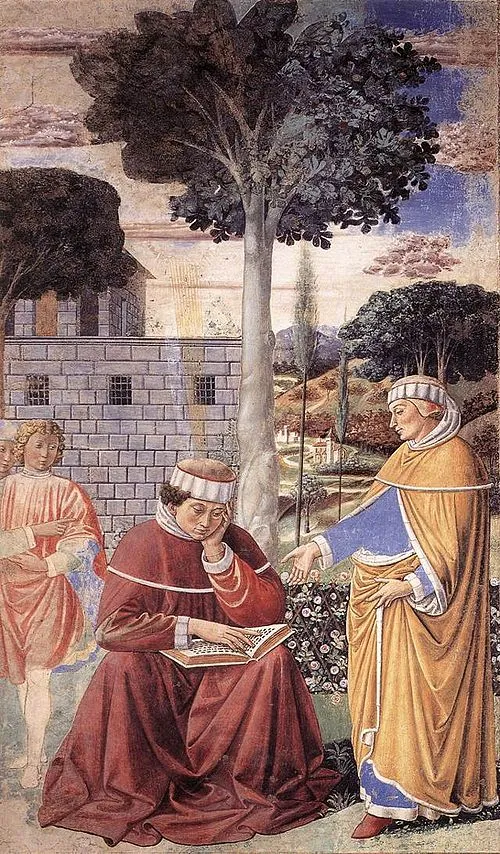In 2021, Kabul fell to the Taliban as Ashraf Ghani fled Afghanistan, marking the resurgence of the Islamic Emirate of Afghanistan. This shift saw local residents and foreign nationals evacuate amid the changing political landscape.
On August 15
29
Important Days
95
Important Events
323
Births and Deaths
recorded.
Holidays and Occasions
Events
Births and Deaths

Armed Forces Day in Poland: A Tribute to Bravery and Sacrifice
Armed Forces Day is a significant occasion in Poland, dedicated to honoring the bravery and commitment of the Polish Armed Forces. Celebrated annually on the first Saturday of September, this day serves as a reminder of the sacrifices made by military personnel in defending the nation’s sovereignty and stability...

Understanding Constitution Day in Equatorial Guinea
Constitution Day in Equatorial Guinea is a significant national holiday celebrated annually on November 17. This day commemorates the adoption of the country's first constitution in 1991, marking a pivotal moment in the nation's history as it transitioned towards democracy and the rule of law...

The Founding of Asunción: Uncovering Paraguay's Architectural and Cultural Roots
Asunción, the capital city of Paraguay, holds a rich history that dates back to its founding in the early 16th century. Founded on August 15, 1537, by Spanish explorer Juan de Salazar y Espinosa, Asunción emerged as a pivotal settlement in the region and played a crucial role in the history of Paraguay and South America as a whole...

Independence Day: Celebrating Korea's Liberation from Japanese Rule in 1945
Independence Day, or Gwangbokjeol, is a significant national holiday in South Korea, celebrated annually on August 15th. It marks the liberation of Korea from 35 years of Japanese colonial rule following Japan's defeat in World War II in 1945...

Gwangbokjeol: Understanding South Korea's Independence Day
Gwangbokjeol, known as Independence Day in South Korea, is a significant national holiday celebrated on August 15 each year. This day commemorates the liberation of Korea from Japanese colonial rule in 1945, marking a pivotal moment in South Korean history...

Understanding Jogukhaebangui Nal: Celebrating Fatherland Liberation Day in North Korea
Jogukhaebangui Nal, or Fatherland Liberation Day, is a significant national holiday celebrated in North Korea every year on July 27th. This date marks the Armistice Agreement signed in 1953, which effectively ended the Korean War...

India's Independence Day: Celebrating Freedom and Unity
Independence Day in India is a momentous occasion that commemorates the country’s freedom from British rule, achieved on August 15, 1947. This day is celebrated with immense pride and joy by millions of Indians across the globe, symbolizing the sacrifices made by countless freedom fighters who bravely fought for the nation’s sovereignty...

Independence Day: The Republic of the Congo's Celebration of Freedom
Every year on August 15, the Republic of the Congo commemorates its Independence Day, marking the day it gained independence from France in 1960. This pivotal event symbolizes the nation’s resilience and struggle for sovereignty, and it is celebrated with great fervor across the country...

National Day in Liechtenstein: A Celebration of Heritage and Unity
National Day in Liechtenstein is a vibrant celebration held annually on August 15th, marking a significant occasion in the tiny but proud European nation. Known for its picturesque landscapes and rich cultural heritage, this day is an opportunity for the citizens of Liechtenstein to embrace their identity and reflect on the values that unite them...

National Day of Mourning in Bangladesh: Honoring a Legacy
Every year on August 15, Bangladesh observes the National Day of Mourning, a significant day that honors the memory of former Prime Minister Sheikh Mujibur Rahman and his family, who were tragically assassinated in 1975. This day serves as a solemn reminder of the sacrifices made in the struggle for independence and the importance of ensuring justice and democracy in the nation...

Wafaa El-Nil: The First Day of Flooding of the Nile in Egypt and Coptic Traditions
The ancient Nile River, one of the longest rivers in the world, has been the lifeblood of Egypt for millennia. Its annual flooding has been celebrated since time immemorial, symbolizing renewal, fertility, and life...

The Main Day of Bon Festival in Japan: Traditions and Celebrations
The Bon Festival, or Obon, is one of Japan's most significant cultural festivals, celebrated annually to honor the spirits of ancestors. Traditionally, it falls around mid-August, although some regions observe it in July...

Discover the Awa Dance Festival in Tokushima Prefecture: A Cultural Extravaganza
The Awa Dance Festival, held annually in Tokushima Prefecture, Japan, is one of the country’s most vibrant and culturally rich festivals. Celebrated every August from the 12th to the 15th, this festival brings together thousands of dancers and spectators, captivating audiences with its energetic performances and deep-rooted traditions...

Commemorating Victory over Japan Day (V-J Day) in the UK
Victory over Japan Day, commonly referred to as V-J Day, marks the day when Japan's surrender during World War II was announced. This momentous occasion not only brought an end to the war in the Asia-Pacific region but also represented a significant turning point in history for many nations, including the United Kingdom...

Remembering Heroes: The Significance of End-of-War Memorial Day in Japan
Every year, Japan comes together to commemorate the End-of-War Memorial Day, a solemn occasion dedicated to remembering and honoring the souls who sacrificed their lives during wartime. This memorial service, known as the National Memorial Service for War Dead, plays a crucial role in the country's approach to acknowledging its complex history and promoting peace...

The Inspiring Legacy of Altfrid: A Peacemaking Bishop of Hildesheim
Altfrid, a prominent figure in medieval ecclesiastical history, was born in the early 9th century in the region that is now modern-day Germany. Renowned for his role as a bishop and a significant player in the ecclesiastical reforms of his time, Altfrid's life is a fascinating study of faith, leadership, and cultural transformation...

Alypius of Thagaste: A Journey from Secular Life to Christian Leadership
Alypius of Thagaste, also known simply as Alypius, was a prominent Christian saint and one of the most influential figures in the early Church. His life straddled the late 4th and early 5th centuries, a period marked by significant theological debates and the emergence of foundational Christian doctrines...

Feast Day of the Assumption of Mary: Significance and Global Celebrations
The Feast Day of the Assumption of Mary, celebrated on August 15 each year, is one of the most significant holy days in the Catholic calendar. This day commemorates the belief that the Virgin Mary was assumed body and soul into heavenly glory at the end of her earthly life...

Feast of the Dormition of the Theotokos: Significance and Celebrations
The Feast of the Dormition of the Theotokos, celebrated predominantly in the Eastern Orthodox, Oriental Orthodox, and Eastern Catholic Churches, represents a profound significance in the Christian liturgical calendar. This feast commemorates the death, resurrection, and glorification of the Virgin Mary, who is honored as the Theotokos, meaning 'God-bearer' or 'Mother of God...

Discovering Ferragosto: Italy's Mid-August Holiday
Ferragosto, celebrated on August 15th, is one of the most cherished and vibrant holidays in Italy. This beloved festival marks the peak of summer and is steeped in history, tradition, and a deep sense of community...

Lady's Day in Ireland: A Celebration of Fashion and Racing
Lady's Day, a significant event in the Irish social calendar, is marked by celebrations, fashion, and, of course, horse racing. Taking place primarily at the renowned Galway Racecourse, Lady's Day is a highlight of the racing season, attracting thousands of locals and visitors alike...

Discover Māras: A Hidden Gem of Latvian Culture and Nature
Latvia, a country known for its beautiful landscapes and rich history, is home to many significant places, one of which is Māras. Located in the Jūrmala municipality, this small but vibrant area offers a glimpse into the traditions and lifestyles that have shaped Latvian culture...

Celebrate Mother's Day: A Global Perspective from Antwerp to Costa Rica
Mothers are the cornerstone of families and societies, deserving a special day dedicated to honoring their love and sacrifices. As Mother's Day approaches, we explore how this occasion is celebrated in two distinct locations: Antwerp, Belgium, and Costa Rica...

National Acadian Day: Celebrating Acadian Heritage and Culture
National Acadian Day, celebrated annually on August 15th, is a significant occasion for the Acadian community, recognizing their rich heritage, culture, and contributions to the social fabric of Canada, especially in the Maritime provinces. This day honors the history of the Acadians, who are descendants of French settlers who arrived in North America in the early 17th century...

Navy Day in Romania: Celebrating Maritime Heritage and Valor
Navy Day, celebrated annually on August 15th in Romania, is a significant event that honors the country’s naval forces and showcases its rich maritime history. This day is dedicated to appreciating the sacrifices and contributions of those who serve in the Romanian Navy, as well as raising awareness of the navy's vital role in national security and maritime affairs...

Virgin of Candelaria: Iconic Patroness of the Canary Islands
The Virgin of Candelaria, or Nuestra Señora de la Candelaria, holds a cherished place in the hearts of the Canary Islands, particularly in Tenerife, Spain. This revered statue, which is believed to have miraculous powers, is deeply entwined with the island’s identity, history, and culture, attracting pilgrims and tourists alike...

Exploring San La Muerte: Paraguay's Folk Catholic Saint of Death
San La Muerte, or Saint Death, is a fascinating and enigmatic figure in Paraguay's folk Catholicism, intertwining elements of indigenous beliefs and Catholic traditions. Revered as a protector, this skeletal figure with a scythe represents a unique blend of spirituality, cultural identity, and social commentary on life and death...

Exploring Santa Muerte: The Saint of Death in Mexican Folk Catholicism
Santa Muerte, often referred to as the “Saint of Death,” is a controversial and deeply revered figure within Mexican Folk Catholicism. While some view her as a symbol of faith and protection, others perceive her as a representation of the darker aspects of Mexican spirituality...

Understanding Tarcisius: The Young Martyr of the Eucharist
Tarcisius is a name that resonates with many Christians, particularly within the Catholic tradition, symbolizing purity of faith and the sanctity of the Eucharist. This article delves into the life, significance, and legacy of Tarcisius, a young martyr who served as an inspiration for generations...























